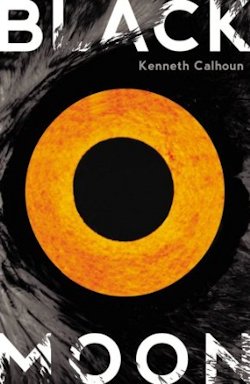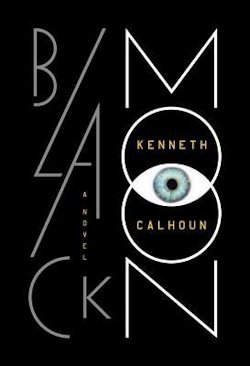Black Moon is a book which wants to confuse you, and in that sense, it’s a soaring success.
The thought behind its apocalypse is appallingly plausible: a plague of infectious insomnia has wounded the world, laying almost the lot of us low in the process. Without sleep, the larger part of the population is losing it. Unable “to distinguish fact from fiction,” to tell dreams apart from reality, the inflicted become zombies, of a sort. Thankfully they’re absent that habitual hankering for brains, but “the murderous rage they feel when seeing others sleep” has already led to indescribable violence on a scale that beggars belief.
It falls to the few who remain relatively rational to figure out what in God’s name is going on…
Many in the scientific community were focusing on a known disease—fatal familial insomnia—the idea being that this was some kind of mutated strain of the already mutated variation called sporadic familial insomnia. Whereas FFI was believed to be hereditary and limited to less than forty families in the world, and took up to two years to kill the afflicted, this new iteration seemed to be some kind of unstoppable upgrade. Accelerated, resistant, moving through the four stages of demise at three times the speed.
But this was just the leading theory. No real connection had been made, and the medical community remained confronted by its greatest fear: a mystery.
A mystery that is very probably unsolvable, given the worsening condition of those looking into it.
Black Moon isn’t a long novel. Nevertheless Kenneth Calhoun proffers three diverse perspectives rather than allowing readers to settle into a single just-so story. Of these, we hear from the easiest to like, namely Lila—a little girl sent her away for “her own safety” who feels betrayed by her parents—the least. A shame: hers is certainly a familiar figure in apocalyptic fiction, but she’s sweet and real and resonant in a way that the other pair of protagonists can’t match.
Biggs, to begin with, is an advertising executive unaffected by the sleeping sickness who thinks he can trick his partner Carolyn into getting better by taking a handful of unbranded aspirin. He can’t. Instead, she tries to kill him, and when all else fails, she runs away—repelled by the arrogance of his character, I can only imagine. Biggs gives chase, taking to the streets in the belief that he can still save her, somehow. Carolyn’s trail takes him to a brothel where a lady calling herself Mother Mary claims to be able to sing people to sleep… for the right price. But Biggs, the cynic, knows better than to believe her lies, right up until the point they turn out to be true.

Chase is, if anything, even less pleasant. Recently separated from his childhood sweetheart Felicia, his fair-weather friend Jordan—who knows, for no good reason really, that the plague is on the way—convinces Chase that the thing to do is help him steal some stuff: sleeping pills, primarily.
But our man has a secondary agenda. Unprepared to face the fact that he may be gay—indeed, the very idea seems to sicken him—he comes to the conclusion that he must suffer from erectile dysfunction, and furthermore, that this was the reason Felicia called it quits with him. In due course he five-fingers a batch of Viagra, swallows the better part of the pack and ends up with—let me try to put this politely—an engorged appendage which won’t take no for an answer.
I challenge you to care about either of these ghastly characters. And the narrative is all over the place, I’m afraid. The better to put readers in the slippers of the sleepless, presumably—as an individual in the early stages observes, “the mechanism that puts one minute after another has broken so that now it’s just forever in all directions at once”—but by dint of this stylistic decision Black Moon feels unfortunately disordered.
Thus there aren’t a great many reasons to push through Kenneth Calhoun’s debut. The premise is arresting, yes, but it’s been executed better before: in Sleepless by Charlie Huston and China Mieville’s Perdido Street Station, among other examples. And though the prose is manifestly impressive—on the sentence level there’s quite a lot to like—the author’s determination to dazzle is sometimes a bit much. “The pornographic scent of peppermint,” anyone?
That said, there are a number of nice touches; glimmers of greatness like “the incidental lyricism” of the sleepless’ speech, and Adam and Jorrie’s unsettling story—which, presented independently, would have made for a phenomenal short. Here, however, it adds nothing to the larger narrative. Like the ending, then, which Chase appears to address in this excerpt:
He finished quickly, though no resolution phase followed. His readiness persisted. It was as though he had told his cock an incredible story and it had laughed and cried, then turned to him and said, ‘Then what?’
I’d pose much the same question to Kenneth Calhoun, in truth.
Black Moon is available now from Hogarth Press
Niall Alexander is an extra-curricular English teacher who reads and writes about all things weird and wonderful for The Speculative Scotsman, Strange Horizons, and Tor.com. He’s been known to tweet, twoo.










